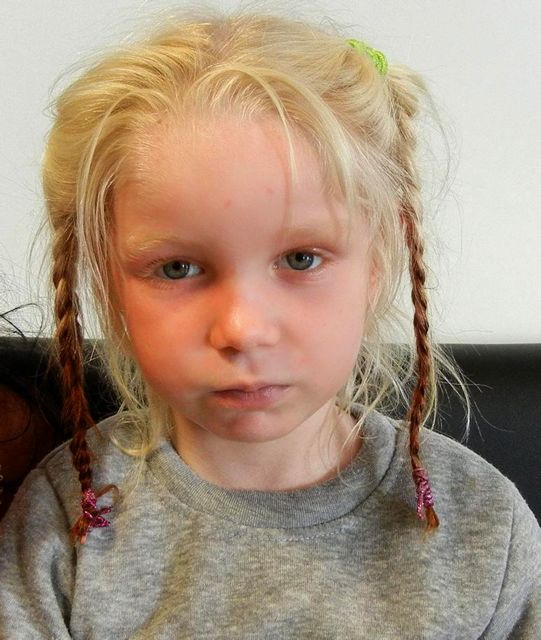After discovering a young blond and blue-eyed girl in a Roma camp in Farsala named “Maria” during routine search operation, the police are going expanding their investigations on the operation of illegal adoption rings in northern Greece.
The police are specifically looking into three illegal adoption rings that were operating in northern Greece between 2009-2011 – with the participation of Roma gypsies and Bulgarians – in conjunction with information on missing children from Poland and other Scandinavian countries.
An anthropologist has been tasked to examine Maria in order to determine her age and possibly her likely nationality. The girl only knows a few words in Greek and is able to communicate only in a gypsy dialect. The couple who appeared to be Maria’s parents had fraudulently registered 14 children in three different municipalities and has faced charges for robbery and forging official documents in the past.
Police officials suspect that the couple was involved in a family benefit scam and an illegal adoption ring, which is possibly based in Bulgaria. The reluctance of the detained couple to further elaborate on the identity of the child’s biological parents has lead the police to suspect that they are involved in an illegal adoption ring. The prevailing belief is that the blond girl was not abducted, as biological parents would have launched a search and confirmation of identity would then be a simpler matter.
Another possibility is that the child was intended for adoption by a Greek couple and that after illegal adoption rings were busted, the adoption fell through and the Roma couple was left with the child. Interpol has provided assistance in order to support Greek authorities in their investigation.
Three illegal adoption rings
The police are now looking into recent cases of illegal adoptions, in hopes of uncovering further details about the mysterious origin of Maria, with the focus on three specific gangs that operated between 2009 and 2011 in Greece.
The first gang which operated in northern Greece was busted in 2009 and 11 people were arrested. In this case a Bulgarian middleman tasked a Roma couple to locate potential buyers. The police report reveals that the sellers had “taken pictures of the child and showed it off as merchandise to prospective adoptive parents”.
The police are also looking into another illegal adoption ring that was busted by the Bulgarian authorities in 2010. This gang would send babies from Nova Zagora and central Bulgaria for sale in Greece. In the past Nova Zagora has been known to be associated with illegal adoption gangs operating in Greece, Italy and elsewhere.
The latest adoption ring of interest was busted in 2011 in Athens, which resulted in the arrest of seven people in Greece and five in Bulgaria. The ring would take advantage of pregnant Roma women from Bulgaria and have travel to Greece, where they would sell their children to Greek couples for 20,000 to 25,000 euros. The gang would use violence to take the newborn babies from their biological mothers and use falsified documents to carry out the adoptions.



